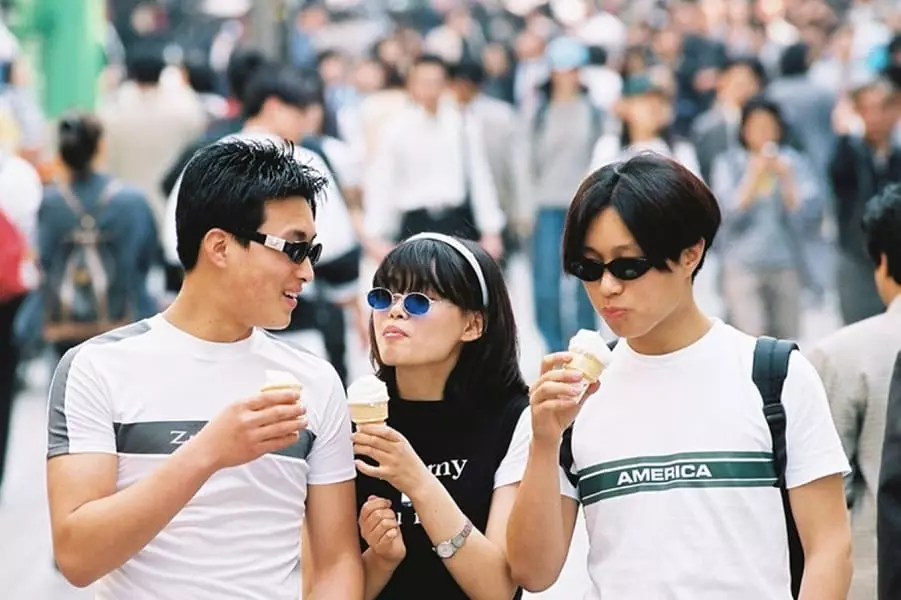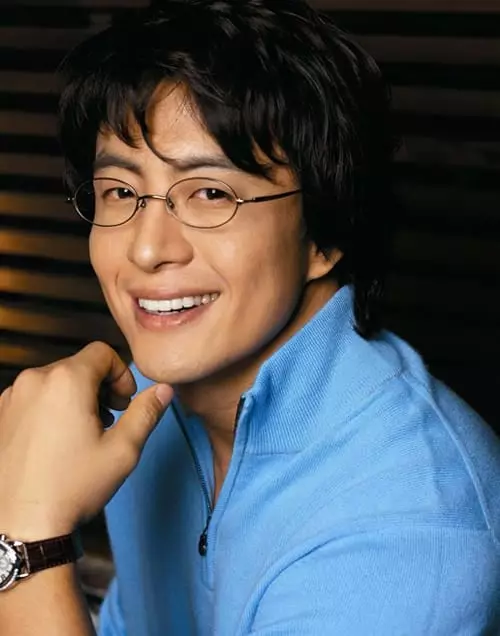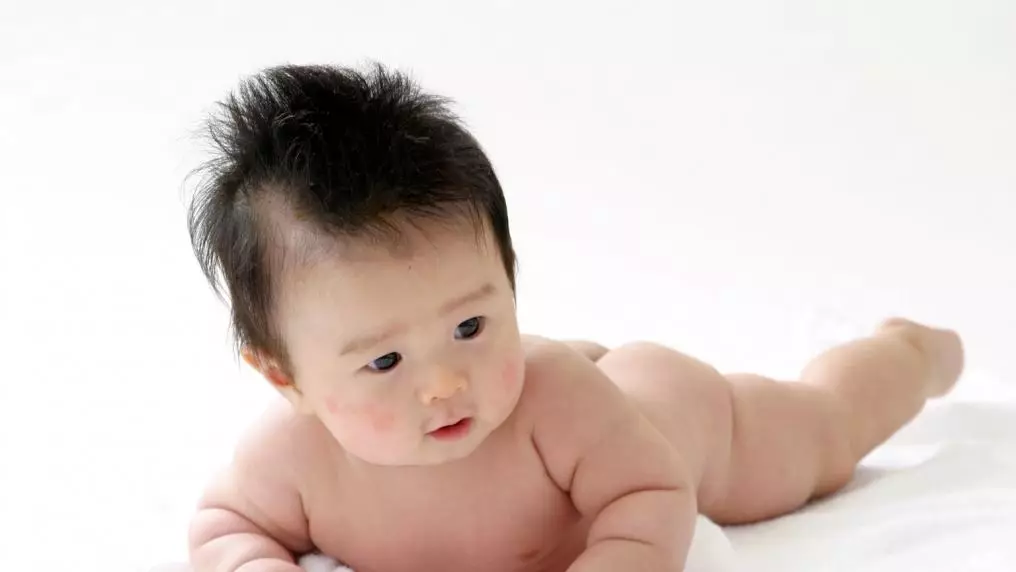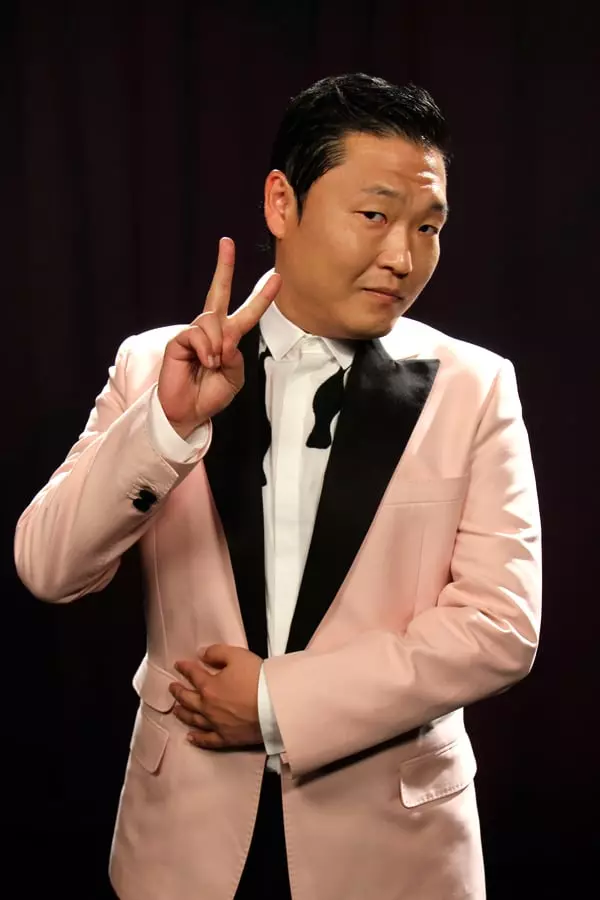Korean names have a very ancient story, which goes with its roots in times to our era. Then, of course, Korea, as such, there was no more in the mere, and there were early-referring Korean states. In the future, the first Korean names will have to be not easy - they will be supplanted by Chinese variations, pronounced on Korean Floor.
What happens to the names of the inhabitants of the modern Korea Republic? What features do they have? I propose to get answers to the questions set in this material, as well as to disassemble the most common Korean names for men and what they are denoted.

Historical reference
Find out what awaits you today - a horoscope for today for all zodiac signsBy numerous subscribers requests, we have prepared an accurate horoscope application for a mobile phone. Forecasts will come for your zodiac sign every morning - it is impossible to miss!
Download free: Horoscope for every day 2020 (Available on Android)
Chinese culture had a strongest impact on the national names of Koreans in their time. The fact is that until the second half of the 16th century in Korea, there was no own writing in Korea, and in the filling of any official documentation, Chinese characters were applied.
The latter were selected, pushing out what they mean and how they were pronounced - to make the most similar to Korean names. As you know, in 1945, Korea was divided into 2 countries - the North and South, the laws in each of the states are very different among themselves. So in the North Korea, Chinese writing at the official level is canceled, and the Korean ABC is taken for recordings, called Hanghal.
Distinctive features of Korean names
In general, the Korean culture of the name is strikingly different from our, domestic. A number of characteristic features of national Korean names can be distinguished:
- As a rule, the surnames of the Koreans are one-strokes and they always precede a personal name.
- The standard Korean name is formed by 3 components: the first one is the surname, and the second and third are personal names. Consider on the example of the popular actor PE Yong Zhong: "PE" is his last name, and "Yon Zhong" - names of their own.
- But in Korea, everything is not limited to the names and surnames alone, such a concept as "Pon" is also known. He is designed to denote the region of the origin of a specific kind. For example: the carriers of the surname Kim adord to it geographical designations of Köndju, Mijan, Kimhe and others, corresponding to the territorial units of the state.
- Koreans are necessarily obliged to study their pedigree in detail. Very often they can tell about their distant relatives who lived in the 10th century from the Nativity of Christ.
- Initially, the surnames were exclusively representatives of Korean nobility. The simple population had to be satisfied with the names of their own.
- The Koreans of the High Social Status could choose their name from several variations, made a choice depending on personal preferences.
Interesting moment. The owners of the same surname and pona in Korea are relatives, and therefore, they are forbidden to combine themselves for marriage (even if they are absolutely someone else people in the blood).
What is the meaning of the Koreans
It has already been mentioned above that in North Korea used its own alphabet - Hangle. Despite this, most of the national Korean names are characterized by hieroglyphic origins and are recorded with the help of Chinese hieroglyphs.
There is no such thing as well-established names in Korea in principle - each name performs a combination of a couple of hieroglyphs, which are chosen in their meaning.
Therefore, when Korean answered you to the question: "What is your name?", Immediately it is easy to understand what our parents believed. As in any other culture, in the residents of Korea, when choosing a name, preference is given to hieroglyphs with strong positive characteristics.
Examples:
- Mi - beauty;
- Chon - sincerity;
- Hyu - respect for parents.
In addition, the hieroglyphic signs are often taken, denoting specific objects of the material world or living beings. For example, in a large number of Korean names, the following syllables can be met:
- Juice - stone;
- Ho - tiger;
- Hwa - flower.
Moreover, the choice of hieroglyphs for name is incredibly diverse - it has hundreds and even thousands of characters. And, it means that there is nothing to be surprised that Koreans for life practically do not meet their twinkles (people with the same names).

I suggest to try to decipher the meaning of the standard national name, taking as an example the name of the previously mentioned Korean actor PE Yong Zhong. What does it mean?
- Heroglyph "Yong" - translates into Russian with the words "courage", "courage";
- Zhong sign - in translation denotes "something outstanding", "What is worth paying great attention to".
It turns out that literally the name of the actor means "outstanding and bold man." It should be noted, it suits him just perfectly, after all, Yong Zhong became famous not only in the territory of his native country, but also abroad.
Important moment. In Korea, the name for the newborn is very important in Korea, since the locals are convinced that the name is able to change life most radically. Therefore, the process of selection of the name here is a difficult and very long.
Choose the name will help the fortune teller!
Of course, absolutely every parent wishes happiness, health and success to his chad. And the responsibility of Koreans when choosing names for kids simply raises - they are ready to entrust such a significant event in their lives by a specialist.
The fact is that, according to Eastern philosophy, calling a child, it is important to consider at the same time several of the most important points:
- According to the teachings of Sachu - the full date of appearance on the light, including time and place, because it seriously affects the full life;
- On the theory of interaction 2 main principles - Male energy "Yang" and the women's "yin";
- On the theory of 5 primary elements of U-Sin (Energy of fire, wood, metal, earth and water).
It is very difficult to figure them out on their own. Therefore, in recent years, Korean parents have been preferred to contact one of the specialized centers called Chakmenso. In the centers are accepted professionally trained gadels, which are selected by the name of Chad, given the various factors.
Korean Name Specialists say the following:
"The fate of a person is predefined in advance. But if you correctly choose a name - the child will receive an additional portion of good luck and happiness. "
True, not all residents of the Korean Republic believe in such things. There are those who find them just prejudice. Despite this, the centers of Chakmenso are visited by a large number of people, gaders do not risk the unemployed.
A certain category of parents prefers to make the choice of the most successful name of the baby independently. But relies on the appropriate literature, which is generously offered by Korean bookstores and is designed to help solve this problem.
As for the centers of Chakmenso, then, as a rule, parents offer to the gadel a few variations of the names of the names, and he already on the basis of a detailed analysis is asked the most successful. Sometimes the situation is developing in the opposite way: a specialist himself gives a choice of a list of suitable names, and parents, considering, inclined to that or otherwise.

The price of such a service varies greatly on the average limits from one hundred thousand to one million Vaughn (local currency of Korea). Interestingly, due to the development of technical progress, Koreans have the opportunity to contact the centers of children via the Internet. Operation online is incredibly convenient and allows this practice to become even more popular.
What are the names in fashion from Koreans
The trends of the variable fashion apply not only to the items, shoes, but also on the names. In the Korea at different times, various variations of names were especially popular.
In the period from 1940 to 1950, men's names of Jonchhol, Jonsu and Jonho, and women - Jonzha, Sunchja and Jonhi, were most often used. And the names of girls Yonyzhj and Sunchja have Japanese roots and today almost completely out of use.
At the moment of time, it became fashionable to correct kids from the origin of Korean names. Therefore, in modern Korea, you can very often meet the following options:
- Arym - Beauty;
- Hanal - Heaven;
- Science - smart and kind person;
- Isle - purity or dew.
We see that the hieroglyphs from the Korean language are taken for the naming, which have a benevolent sound and filled with deep positive energy.
At the same time, the number of "Americanized" names increases. The globalization of Korean society has greatly affected this process, as well as an increase in demand for foreign culture (and most of all on American). Therefore, a fairly large percentage of local citizens began to call their children with names with a lung English pronunciation, but which can be written with positive Chinese signs.
Examples of similar "double" names:
- YuChin - either Eugene in English;
- Such - either foreign Susie;
- Jein - either English jane.
The specified trend is gaining momentum, it decides to stop more and more married couples of Koreans.

Men's Korean Names: List, Meaning
It's time to get acquainted with the examples of Korean names for representatives of a strong floor, finding out also what they designate.
- Bao - Defender.
- Beach is nephite.
- Binch - peace-loving.
- Bean - is exquisite, sophisticated.
- Bething - performs light, glorious.
- Wiens - final.
- Wang - cloud.
- Winx - bay.
- Dinh - Top.
- Duk - who wants.
- DE - is great, big.
- Jung - love.
- Ji is very wise.
- Jin-ho - acts as the leader, the golden hero.
- Jung - is chaste; love.
- Jin is characterized by nobility.
- Dung is distinguished by courage.
- DUONG - manifests courage.
- EN - peaceful.
- Yёng - endowed with great courage, courage.
- Isyul - dew drops.
- Yong - manifesting courage.
- Jung - is an eternal, prosperous.
- Kuan - He performs a soldier.
- Kim - gold color.
- Kui - is precious.
- Kuang - acts clear, clean.
- Kouen - Bird.
- Lena - lotus flower.
- Lin - Spring time.
- Lan is a peace-loving person.
- Monkut - Diadem.
- Mei - flower.
- Min - is a bright, noticeable.
- Nung - a piece of velvet.
- Nguyen - the beginning.
- NGA - grass.
- NGOK - acts precious stone.
- NGUTS - Moon.
- Pakpao - In translation, the name means "paper snakes".
- Puong - He is similar to Phoenix.
- Sunan - good words.
- CO - he behaves calmly, slowly.
- Su - attractive appearance, is outstanding.
- SUK - is clean, chaste, virtuous.
- Tien - Soul.
- Three - Oyster.
- Tu - Star.
- Tuan - acts bright.
- Tuan - radiant.
- Tuet - like white snow.
- Thai - behaves friendly.
- Thhan - is bright, clear.
- Thi - poet.
- TCH - autumn time.
- Thuang is the one who has been told.
- Hanuel is heavenly.
- Hun - endowed with great wisdom.
- Hung - bold.
- Hoa - flower.
- Ho - tiger.
- Hu is a dense physique.
- HUONG - pink color.
- Xuan - Spring time.
- Hong - rose flower.
- Chi - tree branch.
- Chow - Pearl.
- CHOL - Moved life.
- U is the one who helps, protects, blesses.
- Tire is trusted, faithful.
- YN - cautious, attentive.
- Jong is incredibly brave.
- Yun - soft.
And in the end, browse the video on the topic:
